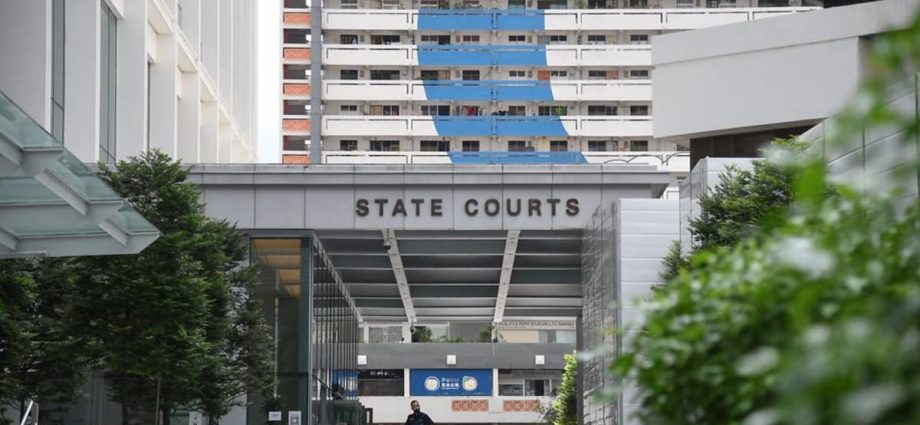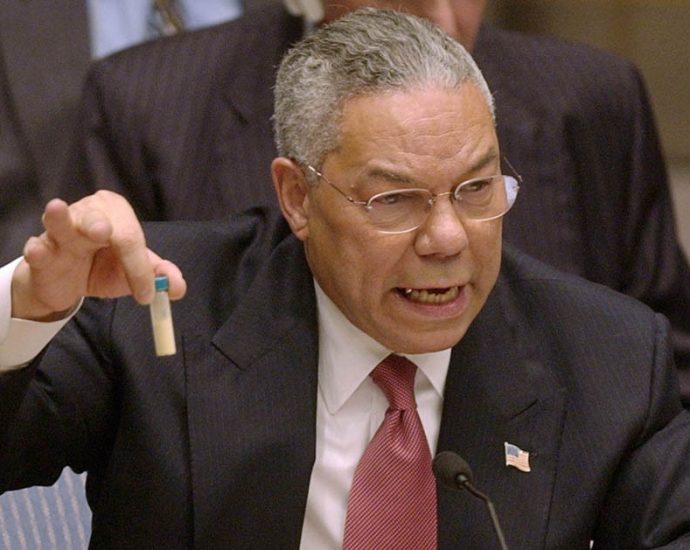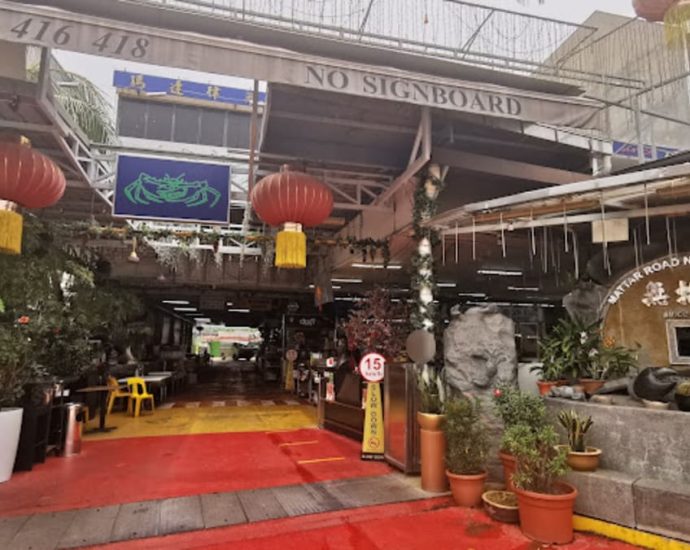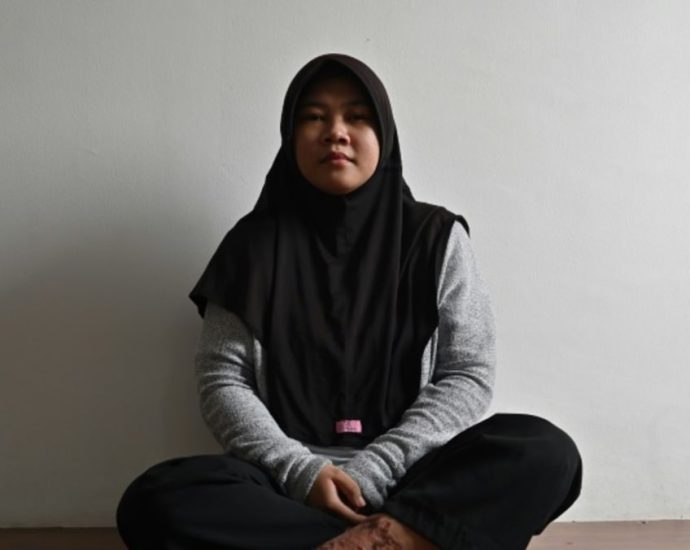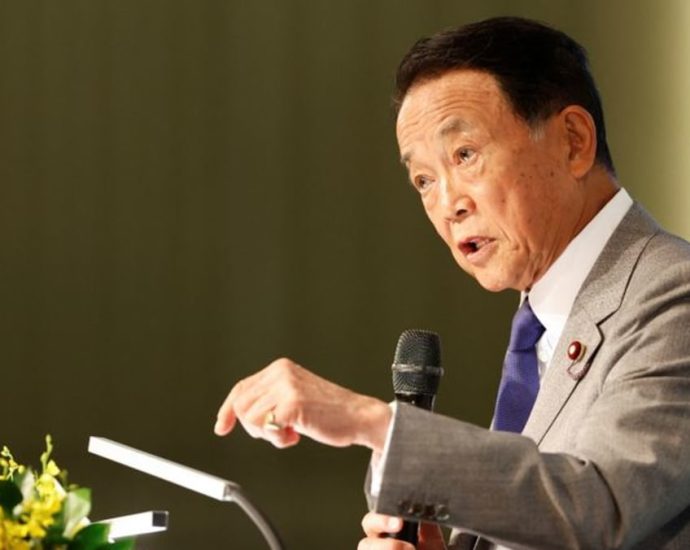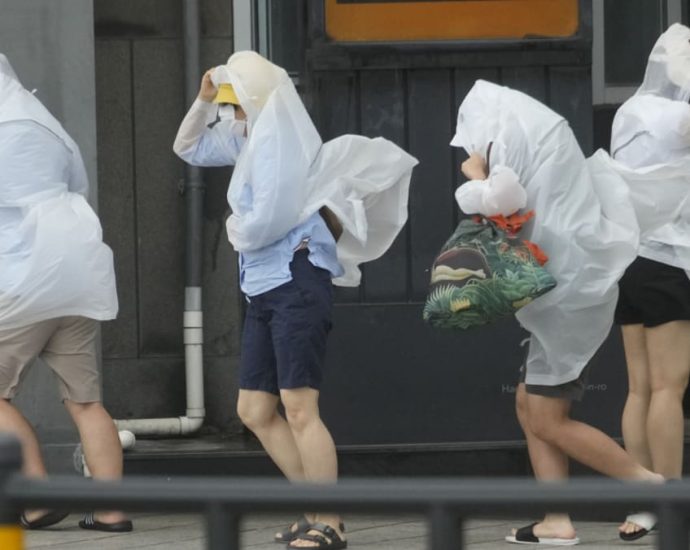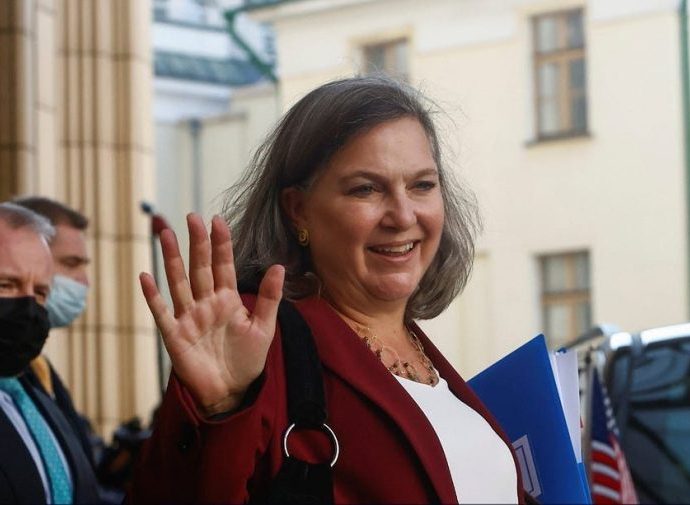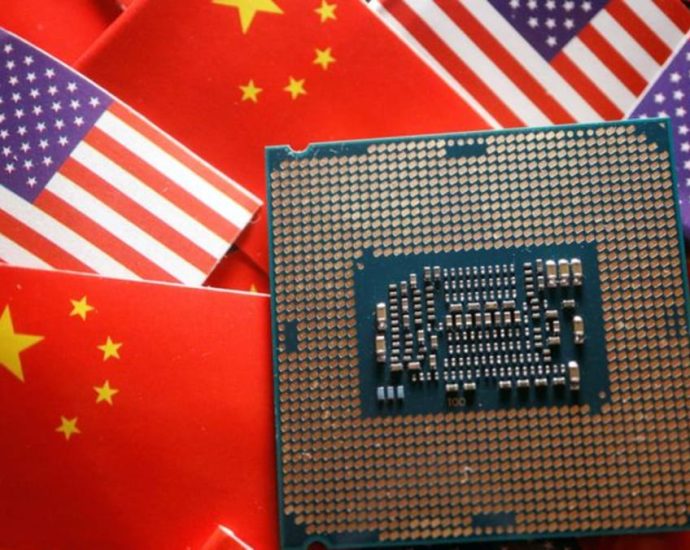Singapore Chess Federation ex-treasurer awarded S$120,000 in defamation suit over sexual misconduct allegation
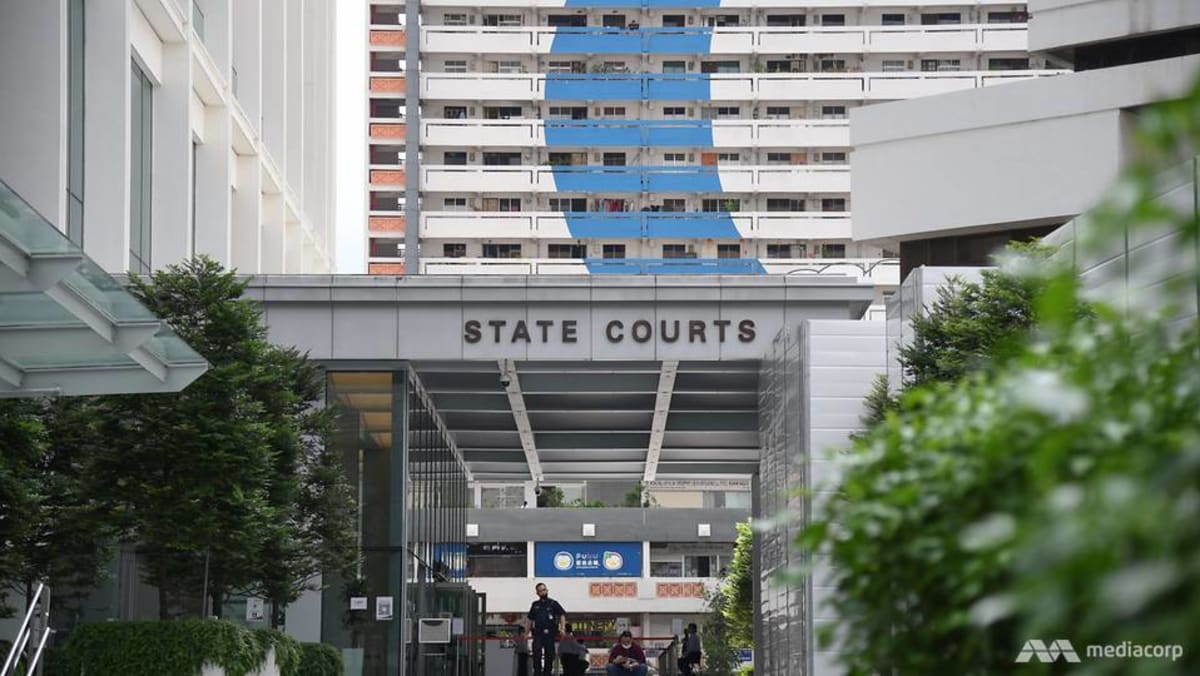
FEMALE TRAINER’S RESIGNATION
One section of the defamatory letter referred to the resignation of a female chess trainer, Ms Anjela Khegay.
The letter alleged that Ms Khegay resigned from SCF on Aug 31, 2015 due to an “incident”, involving sexual misconduct of a verbal nature, at the federation’s Bishan office the day before. Ms Khegay subsequently filed a police report.
The letter further stated that Mr Nisban was one of two council members implicated in the incident, and that the president Mr Lau decided to withhold a report from other council members “despite the gravity of the matter”.
The reality was that Mr Nisban was in the room when the other council member who was implicated, Mr Tony Tan Teck Leng, made a remark to Ms Khegay which she found insulting.
On Jan 22, 2016, Mr Nisban’s lawyers sent a letter of demand to the 51 signatories, informing them that the statements in the letter were untrue and asking if they would dissociate from the statements.
Some subsequently withdrew their support. Mr Nisban sued the remaining for libel but 18 of them settled the matter, leaving the 21 defendants.
Not all 51 people who signed the requisition request were shown or had read the letter. Several claimed that they were only shown the signature sheet.
“SAME BRUSH OF SHAME”
In her judgment, District Judge Tan found that naming Mr Nisban in the letter “had the effect of tarnishing both council members with the same brush of shame”, even though Mr Nisban played a different role in the incident.
She ruled that a SCF member reading the letter would take it to mean that Mr Nisban was one of two council members accused by Ms Khegay of sexual misconduct; that the misconduct was serious enough to cause her to resign and lodge a police report; and that court proceedings could be pursued against them.
Most of the defendants argued that the word “implicated” in the letter merely meant “being involved”, but the judge said it was clearly meant to convey being involved in something bad or wrong.
“It cannot be argued that a statement to the effect that the plaintiff was accused of sexual misconduct and subject to police investigation would not lower the plaintiff in the eyes of right-thinking members of the SCF, or even the society at large,” District Judge Tan added.
Ms Khegay was also well-known in the SCF community, being a woman international master – the second-highest title in the chess world that is exclusive to women.
SCF members would be concerned about her sudden resignation, especially “chess parents” whose children she was training, said the judge.
The judge further noted that Mr Leong’s “unprecedented defeat” in the 2015 election was a shock to him, with “sufficient damning written evidence” that revealed his animosity towards his successor Mr Lau.
When it was suggested during the trial that the extraordinary general meeting that the letter called for was an act of revenge, Mr Leong did not deny it could be construed as such, said District Judge Tan.
She reiterated that Ms Khegay did not allege anything against Mr Nisban in her police report.
“In her resignation letter addressed to the SCF President, she had complained of the insulting and disturbing remark made to her by Tony Tan which she found to be totally unacceptable and inappropriate for any female,” the judge noted.
ISSUE OF MALICE
Mr Nisban also claimed the defendants had been motivated by political machinations and ill will as part of a plan to push through a vote of no-confidence in the SCF’s new leadership.
He also said there was a “hostile environment” within the executive council due to differences between two camps – Mr Leong and his supporters on one side, and on the other the likes of Mr Lau and Mr Nisban.
One defendant, Mr Kenneth Tan Yeow Hiang, showed his “complete indifference and reckless disregard” about the truth of the defamatory statements, said the judge.
He was a former SCF president as well as an ex-brigade commander in the Singapore Armed Forces. He also served as assistant managing director of the Economic Development Board, group managing director of UOB bank as well as director and chief of staff of Citibank.
The District Judge ruled that Mr Kenneth Tan, having failed to convince Mr Lau to voluntarily step down, signed the letter to support Mr Leong’s bid to oust Mr Lau and the executive council.
“His attitude in simply endorsing the requisition letter wholesale which he believed was prepared by Leong, or for which Leong was mainly responsible, without proper verification of the sexual misconduct allegations is evidence of malice,” she said.
‘COMBATIVE ATTITUDES’ DURING TRIAL
In determining the amount of damages to award Mr Nisban, the judge accepted his argument that the sexual misconduct accusations were particularly grave because they called his character and decency into question.
His wife and sons also “had to bear the shame and embarrassment” of being linked to the allegations, especially since Ms Khegay coached his son, said District Judge Tan.
While Mr Nisban was not a public leader or well-known figure in Singapore, he was well-known within the SCF community and had a reputation to protect.
As for aggravated damages, the judge said this was clearly warranted due to the defendants’ conduct during the trial. They also raised defences that were reckless or bound to fail.
“The trial also revealed the combative attitudes, as well as the disdain and contempt displayed by a number of the defendants towards the plaintiff,” she added.
For example, Mr Alphonsus Chia, former vice-president of Singapore Airlines and ex-CEO of defunct carrier SilkAir, insisted that Mr Nisban “cooked up” the accusation in the letter. He also challenged Mr Nisban to “bring it on”.
The defendant Mr Kenneth Tan also openly declared that Mr Nisban was a “less than straight” person, added District Judge Tan.
She ordered that all parties file submissions on the issue of costs.
The trial spanned 22 days and was spread across February 2021 to October 2022. Mr Nisban was represented by Mr Lau Kok Keng, Mr Daniel Quek and Ms Edina Lim from law firm Rajah & Tann Singapore.
Woman accused of assaulting preschool toddlers and trapping them in dark room, behind table

SINGAPORE: A woman is accused of abusing two toddlers at a preschool by trapping them either in a dark storeroom or behind a table, as well as assaulting them.
A second woman is accused of allowing one of the children to be ill-treated on one occasion.
The two accused parties and the preschool cannot be named in order to protect the two victims.
The alleged abuser, 28, was given six charges on Aug 3 of ill-treating two children in her care under the Children and Young Persons Act.
She is accused of trapping a two-year-old boy under a table at the preschool for about 15 minutes on Jun 22, 2022.
She then placed him inside a dark storeroom for six to seven minutes, before throwing four foam blocks into the storeroom from above while he was trapped inside, charge sheets allege.
That same day, she allegedly poked the face of a girl who was one year and eight months old, before slapping her face and pulling her onto her feet to push the child to the ground multiple times.
She also allegedly hit the girl’s face with foam blocks, rubbed tissue paper into her face forcefully, slapped her and pinched her cheeks violently.
The woman is accused of abusing the two toddlers again on a second occasion on Jun 27, 2022.
She allegedly pulled a chair that the two-year-old boy was seated on, causing him to fall to the ground. She then placed him on a chair and pushed him into a table.
That same morning, the woman allegedly shoved a table laden with objects onto the girl, trapping her. She then shoved the table multiple times into the girl who was one year and eight months old at the time.
Over about half an hour, the woman allegedly hit the girl multiple times on her face with a plastic divider while the toddler was trapped behind and underneath the table.
About 10 minutes after this, the woman allegedly turned her attention back to the boy, pinching his face forcefully and slapping him.
The woman’s lawyer told the court when she was charged that she was five months pregnant.
The second woman involved, also aged 28, faces one charge of failing to protect the girl from being ill-treated. This was in relation to the incident where the girl was hit with a plastic divider.
The cases are pending. The penalty for each charge of ill-treating a child under the Children and Young Persons Act, or permitting such ill-treatment, is a jail term of up to eight years, a fine of up to S$8,000, or both.
A neocolonial history of the UN Security Council permanent five

One of the underlying principles of the UN Charter is the protection of the sovereign rights of states. Yet since 1945, the five permanent members of the UN Security Council (the Soviet Union/Russia, France, the UK, the US and China) have consistently used military force to undermine this notion.
And while acts of seizing territory have grown rare, ongoing military domination allows imperialism to manifest further through economic, political, and cultural control.
System justification theory helps explain how policymakers and the public defend and rationalize unfair systems through the surprising capacity to find logical and moral coherence in any society.
“Reframing” neocolonial policies to reinforce system-justifying narratives, often by highlighting the need to defend historical and cultural ties and maintain geopolitical stability, has been essential to sustaining the status quo of international affairs.
Naturally, the five UNSC members have often accused one another of imperialism and colonialism to deflect criticism from their own practices. Yet prolonging these relationships in former colonies or spheres of influence simply perpetuates dependency, hinders economic development, and encourages instability through inequality and exploitation.
France
In response to comments made by Russia’s Foreign Ministry in February, which singled out France for continuing to treat African countries “from the point of view of its colonial past,” the French Foreign Ministry chastised Russia for its “neocolonial political involvement” in Africa.
The previous June, French President Emmanuel Macron had accused Russia of being “one of the last colonial imperial powers” during a visit to Benin, a former French colony that last saw an attempted coup by French mercenaries in 1977.
Independence movements in European colonies grew substantially during World War II, and Paris granted greater autonomy to its possessions, most of them in Africa, in 1945. Yet France was intent on keeping most of its empire, and became embroiled in independence conflicts in Algeria and Indochina.
Growing public sentiment in France, since referred to as “utilitarian anti-colonialism,” meanwhile promoted decolonization, believing that the empire was actually holding back France economically and because “the emancipation of colonial people was unavoidable,” according to French journalist Raymond Cartier.
France left Indochina in defeat in 1954, while in 1960, 14 of France’s former colonies gained independence. And after Algeria won its independence in 1962, France’s empire was all but gone.
But like other newly independent states, many former French colonies were unstable and vulnerable to or reliant on French military power. France has launched dozens of military interventions and coups since the 1960s in Africa to stabilize friendly governments, topple hostile ones, and support its interests.
French military dominance has been able to secure a hospitable environment for French multinational companies and preferential trade agreements and currency arrangements. More recently, the French military has consistently intervened in Ivory Coast since 2002, as well as in the countries of the Sahel region (particularly Mali) since 2013, and the Central African Republic (CAR) since 2016.
The French-led campaigns have received significant US help. Speaking in 2019 on the French deployments, Macron stated that the French military was not there “for neo-colonialist, imperialist, or economic reasons. We’re there for our collective security and the region.”
But growing anti-French sentiment in former colonies in recent years has undermined Paris’ historical military dominance. Closer relations between Mali and Russia saw France pull the last of its troops out of the country in 2022, with Russian private military company (PMC) forces replacing them.
A similar situation occurred in the CAR months later, and this year, French troops pulled out of Burkina Faso, with Russian PMC liaisons having reportedly been observed in the country.
Frustration with the negative effects of France’s ongoing influence in former colonies has also been directly tied to problems in immigrant communities living in France. The fatal shooting of a North African teenager by police in the suburbs of Paris this June caused nights of rioting, with Russia and China accusing France of authoritarianism for its security forces’ response.
United Kingdom
Shortly after Russia’s invasion of Ukraine, the UK’s prime minister at the time, Boris Johnson, denounced the Russian president for still believing in “imperial conquest.” Yet like France, the UK has often been accused of using military force to help promote British interests in its former empire, including the dominant role of British banks and financial services and other firms, for decades.
As the only European colonial power not defeated by Nazi Germany, British forces were sent to secure Indochina and Indonesia before French and Dutch forces could return after World War II. But London’s focus soon turned to protecting its own empire and emerging independent states.
British forces helped suppress a communist insurgency in Malaya from 1948-1960, fought in the Kenya Emergency from 1952-1960, and intervened across former colonies in Africa, the Middle East, the Caribbean, and Pacific islands.
Additionally, British, French and Israeli forces invaded Egypt in 1956 after the Egyptian government nationalized the Suez Canal, before diplomatic pressure from the US and the Soviet Union forced them to retreat.
Over the next few decades, almost all former British colonies were steadily granted independence, and by 1980 the rate of British military interventions abroad had slowed.
Nonetheless, the 1982 Falklands War somewhat reversed the perception of the UK as a declining imperial power. The successful defense of the Falkland Islands’ small, vulnerable population against Argentine aggression enhanced the perception of the UK as a defender of human rights and champion of self-determination.
Additionally, Britain’s focus on naval power “was important to the self-image of empire,” as naval strength is often perceived as less threatening than land armies. Prominent British politicians such as former prime minister David Cameron have similarly restated Britain’s commitment to protecting the Falklands from Argentine colonialism.
More recently, the British military intervened in the Sierra Leone Civil War in 2000 and was also a crucial partner for the US-led wars in Afghanistan in 2001 and Iraq in 2003. And alongside ongoing official deployments, British Special Forces have been active in 11 countries secretly since 2011, a report by Action Against Armed Violence revealed.
The residual presence of the British military has often made it difficult to embrace the “new and equal partnership” between Britain and former colonies, championed by former British foreign minister William Hague in 2012.
The domestic perception of Britain’s colonial legacy continues to play a divisive role in British politics and society. Winston Churchill, the winner of a 2002 BBC poll on the top 100 Great Britons, was “cited as a defender of an endangered country/people/culture, not as an exponent of empire.” Yet during anti-racism protests in the UK in 2020, a statue of the former prime minister was covered up to avoid being damaged by protesters.
Believing him to be a figurehead of the cruelty of British colonialism, the covering up of Churchill’s statue shows the contrasting and evolving domestic views of British imperialism.
Soviet Union/Russia
After 1945, Soviet troops were stationed across the Eastern Bloc to deter the North Atlantic Treaty Organization and suppress dissent. Several military operations in support of communist governments against “counterrevolutionary” protesters were approved in East Germany (1953), Hungary (1956), and Czechoslovakia (1968).
Soviet forces also took part in a decade-long conflict to prop up Afghanistan’s government from 1979-1989.
In Asia, Africa and Latin America, however, the Soviet Union presented itself as the leading anti-colonial force. It proclaimed an ideological duty financially, politically, and militarily to support numerous pro-independence/communist movements and governments, tying these efforts to confronting the colonial West.
The collapse of the USSR forced Moscow to prioritize maintaining Russia’s influence in former Soviet states. But even today, many Russians do not see the Soviet Union and the Russian Empire as empires, as Russians insist that they lived alongside their colonized subjects through a “Friendship of Peoples,” unlike the British or French.
This sentiment drives much of the rhetoric defending Russia’s ongoing dominance across parts of the former Soviet Union.
On the eve of the invasion of Ukraine in February 2022, Russian President Vladimir Putin once again called into question Ukrainian statehood. Ukraine, like other former Soviet states, has often been labeled an artificial creation by Russian politicians.
Alongside the necessity of military force to protect Russian speakers/citizens, Russian officials have justified conflict and exploitation of fragile post-Soviet borders in separatist regions of Georgia, Moldova, and Armenia/Azerbaijan since the early 1990s.
Russia has also worked to maintain a dependency on its military power in former Soviet states. The Kazakh government’s reliance on the Russian-led Collective Security Treaty Organization military alliance was clearly demonstrated during the CSTO intervention amid protests in January 2022.
Prominent Russian politicians such as Sergey Lavrov have consistently compared the CSTO favorably to NATO, but the lack of support from CSTO member states (except for Belarus) for Russia in its war with Ukraine has demonstrated its limitations.
The Russian military has also been active in Syria since 2011, while dozens of Russian PMCs have increased operations across Africa over the past decade. The Kremlin is increasingly tying these conflicts, as well as Russia’s war in Ukraine, to reinforce Moscow’s traditional role as an anti-colonial power.
Russia has performed significant outreach to Africa since the start of the war, and at the annual St Petersburg Economic Forum this year, Putin declared the “ugly neocolonialism” of international affairs was ending as a result of its war.
By amplifying criticism over the domination of global affairs by the “Golden Billion” in the West, the Kremlin believes it can blunt foreign and domestic criticism over its war in Ukraine, as well as over its approach to other post-Soviet states.
United States
The USA, born out of an anti-colonial struggle, has naturally been wary of being perceived as a colonial power. US presidents voiced support for decolonization after World War II, particularly John F Kennedy. But because “anti-communism came before anti-colonialism,” Washington often supported neocolonial practices by European powers to prevent the spread of Soviet influence and secure Western interests.
The US has also been criticized for its own imperial behavior toward Latin America since 1823, when the Monroe Doctrine was first proclaimed. The United States’ sentiment that it had a special right to intervene in the Americas increased during the Cold War as Washington grew wary of communism.
US military forces intervened in Guatemala in 1954, Cuba in 1961, the Dominican Republic in 1965, Grenada in 1983, and Panama in 1989 to enforce Washington’s political will.
The US war on drugs, launched in 1969, also destabilized much of Latin America, while other instances of covertly fostering instability have prevented the emergence of strong sovereign states in the region.
Major foreign conflicts involving US forces since 1945 include the Korean War (1953-1953) the Vietnam War (1955-1975), the Gulf War (1991), intervention in the Yugoslav wars (1995, 1999), and the “war on terror” (2001-present).
US forces also intervened in Haiti in 1994-1995 during “Operation Uphold Democracy” and again in 2004, while leading international interventions in Libya (2011) and Syria (2014). These interventions have often been criticized for perpetuating instability and weakening local institutions.
Nonetheless, the global US military presence has continued to grow. Since 2007, United States Africa Command (AFRICOM) has seen the US expand its military footprint across Africa and today, 750 known military bases are spread across 80 countries.
US special operations forces are estimated to be active in 154 countries. The US global military presence also gives Washington considerable control over transportation routes, with the US Navy routinely seizing ships violating trade restrictions.
US officials have continued to lean on the country’s history as a former British colony to highlight solidarity with other countries and propose greater cooperation. In 2013, for example, then-secretary of state John Kerry said the Monroe Doctrine, which allowed the US “to step in and oppose the influence of European powers in Latin America,” was over.
And in an address this year from the White House briefing room proclaiming the start of Caribbean-American History Month, President Joe Biden noted how the US and Caribbean countries are bound by common values and a shared history of “overcoming the yoke of colonialism.”
But domestic divides over Washington’s role in global affairs have increased calls for the US to return to its early foreign policy of isolationism. While this will not be enough for the US to retreat on the global stage, it has helped prevent its military from committing to new major conflicts in recent years.
China
The conclusion of the Chinese Civil War in 1949 marked the end of China’s “Century of Humiliation” at the hands of European powers, the US, and Japan. The victory of the Communist Party of China (CPC) allowed Beijing to consolidate power and look toward expanding China’s borders.
This included launching the “peaceful liberation” of Xinjiang in 1949 and Tibet in 1950, steadily bringing these regions under China’s control – though China only took Taiwan’s seat at the UN in 1971.
China’s history of exploitation by foreign powers has frequently been cited by Beijing to increase solidarity with other countries that suffered from Western imperialism.
Key to this messaging was fighting against US-led forces in the Korean War, as part of a “Great Movement to Resist America and Assist Korea” and opposing wider Western neocolonialism, while Chinese forces also engaged in border clashes with the Soviet Union as relations between Moscow and Beijing soured in the 1960s.
But Chinese forces have also been involved in clashes with former European colonies. This includes confrontations with India, as well as China’s launch of a major invasion of northern Vietnam in 1979.
Tens of thousands of casualties were recorded on both sides during the month-long operation, while continued border clashes between Chinese and Vietnamese forces continued until relations were normalized in 1991.
Since 2003, Chinese officials have instead placed great emphasis on China’s “peaceful rise,” which has seen the country drastically increase its power in world affairs without having to resort to military force.
But while large-scale Chinese military operations have not materialized, China has rapidly increased the construction of ports, air bases, and other military installations to enforce its territorial control over the South China Sea over the past decade, at the expense of several Southeast Asian countries.
Chinese President Xi Jinping has justified these developments because the islands “have been China’s territory since ancient times.”
China’s extensive maritime militias and civilian distant-water fishing (DWF) fleets have also been accused of asserting Chinese maritime territorial claims while blurring the lines between civilian and military force.
Additionally, there is fear that China’s growing economic and military might will be enough to force countries in Central Asia to accept the Chinese position on various territorial disputes.
While China has avoided any major military operations this century, it has used its growing economic and military might to pressure other countries into accepting its territorial claims. To offset criticism, Chinese officials have turned their attention toward ongoing and historical imperialism by the West.
After British criticism over Beijing’s handling of pro-democracy protests in 2019, China criticized the UK for acting with a “colonial mindset,” and, in support of Argentina, accused the UK of practicing colonialism in the Falklands in 2021.
These claims help sustain domestic support for China’s policies, help to increase solidarity among other countries which have suffered from Western imperialism, and put China’s geopolitical rivals on the defensive.
Conclusions
It is true that the US military provides necessary security deterrence to numerous countries, and has also proved essential to responding to natural disasters and other emergencies. But like other major powers, the use of US military force has consistently been abused since 1945.
The historical legacy of Western imperialism and interventionism has helped explain why Western calls for global solidarity with Ukraine have often fallen on deaf ears.
Additionally, some of the consequences of the war in Ukraine, including rising energy and food prices, are being most acutely felt in poorer countries, while the growing dominance of Western firms in crucial Ukrainian economic sectors has also undermined the West’s messaging over Ukraine further.
Honest accountability by major powers for the historical and ongoing exploitation of weaker countries remains rare. But public, government-funded initiatives such as the US Imperial Visions and Revisions exhibition at the National Portrait Gallery in Washington document the beginning and justification behind empire-building in the US, and is an important step to addressing past and contemporary wrongdoing, as envisaged by the UN Charter in 1945.
In 2018, French President Macron commissioned a report that discovered that “around 90-95% of African cultural heritage” was located abroad, prompting the French parliament to pass a bill in 2020 allowing these artifacts to be returned.
The promotion of actual history and accountability may also remove barriers to more selfless assistance to weaker countries by major powers.
This approach could, in turn, invite greater cooperation and positive repercussions than costly military interventions, and would also serve as an example for weaker states grappling with their own legacies of violence, exploitation and suppression.
This article was produced by Globetrotter, which provided it to Asia Times.
No Signboard Holdings CEO suspended until resolution of price rigging charges
SINGAPORE: The chief executive officer of No Signboard Holdings has been suspended from all executive duties after being charged with price rigging offences, said the restaurant operator in a filing on Tuesday (Aug 8). Sam Lim Yong Sim, who is also the executive chairman of the company, was charged on JulContinue Reading
Indonesian maid’s torture highlights lack of legal protections
“Demanding protection from other countries while we have not fulfilled the responsibilities ourselves is like a slap in our face.” Despite the risks and horrifying stories of abuse, women from rural areas like Khotimah feel compelled by poverty to keep moving to big cities for work. “We owed money inContinue Reading
Japan ex-PM’s ‘fight for Taiwan’ remark in line with official view, lawmaker says
TOKYO: Former Japanese Prime Minister Taro Aso’s remark on Tuesday (Aug 8) that his country must show “the resolve to fight” to defend Taiwan from attack was in line with Tokyo’s official stance, a lawmaker close to Aso told a TV show late on Wednesday. Aso, vice president of theContinue Reading
Flights cancelled as Storm Khanun hits South Korea
BUSAN: Hundreds of flights and high-speed trains were cancelled and businesses shuttered in the South Korean port town of Busan after Tropical Storm Khanun made landfall on Thursday (Aug 10), bringing heavy rain and high winds. The storm, which battered Japan before taking a circuitous route towards the Korean peninsula, madeContinue Reading
Will the US support armed intervention in Niger?
US Under Secretary of State for Political Affairs Victoria Nuland came to Niger and demanded to see the former president, currently under house arrest in the Presidential Palace. She was turned down and met with a few of the coup leaders in Niamey, Niger’s capital.
She threatened that the US would stop providing aid to the country and demanded that the coup leaders restore the former president, Mohamed Bazoum, to power.
She left empty-handed but with the threat of military action looming, coming either from the ECOWAS countries (Economic Community of West African States) or from US and French troops in Niger – or even from both.
The US trained most of the leaders of the Niger coup and maintains a force of around 1,500 troops in the country. While Niger has asked France to remove its 1,100 soldiers, France has not complied. US troops have not been ordered out of the country, although that remains a possibility if the situation deteriorates further.

Niger is one of the poorest countries in the world. Its main assets are uranium mines primarily owned by French companies.
These days Niger is also producing modest amounts of oil, around 14,000 barrels of oil a day, all of which is domestically consumed. Seventy percent of Niger’s electricity is supplied by Nigeria. Nigeria has halted the supply of electricity since the coup, according to news reports.
Niger’s main uranium mine, SOMAIR (Société des Mines de l’Aïr), gets its electrical power from a local coal-burning generator facility. Niger accounts for around 5% of world uranium production (in the form of Yellowcake).
But France is much more dependent with 20% of its uranium coming from Niger, its number two supplier. France’s top supplier is Kazakhstan. Uzbekistan is its number three supplier, just below Niger.
If Niger’s production is halted for any significant period of time, pressure will grow on other suppliers and uranium prices will likely increase. At present the French company Orano, which is the majority owner of SOMAIR, says that the mine is operating. Prices have ticked up a little but not dramatically.

At present Niger’s airspace is closed. Roadways are blocked and imports of food, medicine and other supplies also are blocked. There is increasing concern that any sustained supply halt could trigger a humanitarian crisis.
ECOWAS has threatened military intervention but not all of the 15 members of ECOWAS favor military action.
The most germane threats to Niger come from the US and French contingents in the country and the potential for either or both to be reinforced. The US contingent in Niger falls under the authority of the US African Command (AFRICOM).
Officially the US military presence is based on 10 US Code 127e, which authorizes US military special operations to be used to combat terrorism. It does not authorize US forces to play any role whatsoever in the internal governance of a host country.
This poses a major problem for Washington, since it would have to declare a national security contingency. There is no conceivable national security contingency one can think of, and US troops are not threatened.
US Secretary of State Antony Blinken and Nuland both have stated that one of their main concerns is the possibility of Russia’s Wagner forces moving into Niger.
So far as is known, there are no Wagner forces in Niger at present, but Yevgeny Prigozhin, Wagner’s co-founder, who was recently active at the Russian Africa conference in St Petersburg, celebrated the coup d’état in Niger and, at least indirectly, has offered Wagner services to Niger.
Wagner currently has operations in Mali, Sudan, Central African Republic and Libya. Mali is a member of ECOWAS.

Niger’s army is one of the poorest equipped in Africa. Its air force has only two jets (Russian-made Su-25s) and a handful of helicopters. The army relies heavily on Toyota trucks with guns mounted on them, although it has some armored personnel carriers.
Jihadist groups are operating in Niger, Mali and Burkina Faso in a tri-border region known as Liptako Gourma, the area adjacent to the River Niger bend between the cities of Gao (Mali) and Niamey (Niger). It includes the regions of Gao in Mali, Sahel in Burkina Faso and Tillabéry in Niger.
Some jihadist groups are linked to al-Qaeda and others to ISIS while still others remain independent operators.
There are ethnic groups, also strict Islamists, that have threatened Niger in the recent past. One group is the Fulani or Fula people. They are, generally speaking, nomadic people and cattle herders, often conflicting with settled farmers fighting over grazing areas. In Niger they represent 3.6 million people.
The other ethnic group, which has staged at least two insurrections in recent years, is the Tuareg. The Tuareg are Berber people, also nomadic. Their population is about 2.6 million.
In the past few days an important Tuareg leader, who was rehabilitated by the previous two Niger governments, Rhissa Ag Boula, has come out strongly against the coup and has been demanding the restoration of the democratically elected government.
Whether Ag Boula can mobilize the Tuareg isn’t yet known but if he can it could pose significant internal problems for the military junta. He heads the Council of Resistance for the Republic and supports ECOWAS military intervention.
While the US supports democratically elected governments and their leaders, it would be difficult to justify armed intervention unless a real threat to US national security could be shown to exist.
US intervention would also seriously damage US credibility in Africa and elsewhere in the world as it would be seen as just another colonialist operation against a poor nation. If it were carried out in partnership with France, it would be even worse.
Washington will have to make a decision: to line up with Blinken and Nuland, both interventionists, or to act more sensibly and let Africans sort this out for themselves.
Stephen Bryen is a senior fellow at the Center for Security Policy and the Yorktown Institute. This article was originally published on Weapons and Strategy, his Substack. Asia Times is republishing it with permission.
China says US investment policy ‘severely disrupts’ global supply chains
BEIJING: Beijing on Thursday (Aug 10) said a new US policy to restrict investment in Chinese technology “severely disrupts the security of global industrial and supply chains”. An unnamed Ministry of Commerce spokesperson said President Joe Biden’s executive order “seriously deviates from the market economy and fair competition principles theContinue Reading
Out-of-state voters play key role in determining Kelantanâs government in upcoming election

OPPOSITION OPTIMISTIC
The opposition in the state, however, holds a contrasting view.
They said many who have left Kelantan are losing faith in the PAS government, particularly as the state grapples with challenges such as the long-standing water and sanitation crisis, poor infrastructure, and limited employment.
Led by the Barisan Nasional (BN) coalition, which is part of Prime Minister Anwar Ibrahim’s federal unity government, the opposition said it hopes Kelantanese who are living elsewhere will travel home to vote and help make a real difference.
“We hope they will consider what we’re offering and think about how things are for them now,” said Mr Zawawi Othman, BN Kelantan’s information chief.
“They need to think if they want their younger siblings, who are still in school, to go through the same challenges, leaving behind their parents and their home state – a place that’s not really moving forward.”
Nonetheless, observers said it is an uphill battle for the opposition to wrest the state from the incumbent PAS.
On the ground, anticipation and energy has continued to build from both campaigning politicians and voters, setting the stage for a decisive showdown when Kelantan goes to the ballot boxes on August 12.

